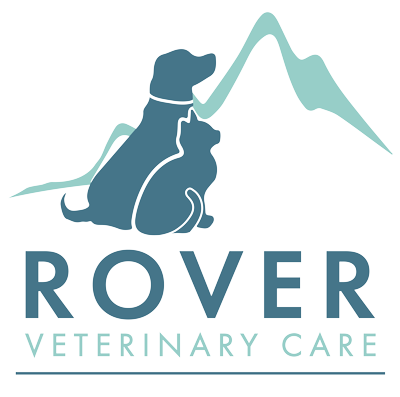How to Assess Your Pet's Quality of Life Before Considering Euthanasia

How to Assess Your Pet's Quality of Life Before Considering Euthanasia

Our pets are more than just animals; they are cherished members of our families. They provide companionship, joy, and unconditional love, making it heartbreaking to see them suffer from declining health. Knowing when it might be time to consider euthanasia as an option is one of the most difficult decisions a pet owner may face.
This guide aims to help you assess your pet's quality of life and prepare for that decision with compassion and clarity. If you're considering in home euthanasia in Reno, NV, this post can provide some valuable insights into when it may be the right choice and how to approach it.
Understanding Quality of Life for Pets
When considering euthanasia, the primary focus is your pet's quality of life. Animals cannot communicate their pain or suffering as we can, so it falls to pet owners to observe signs and determine what’s best for their beloved companions.
The goal is to ensure your pet's comfort and dignity. Oftentimes, this assessment comes into focus when a pet is dealing with severe illness, chronic pain, or age-related physical and mental decline.
Key Factors to Assess
Evaluating your pet’s quality of life requires a thoughtful and objective look at their comfort, health, and ability to enjoy daily activities. Below are some key factors to consider:
1. Pain and Suffering
Does your pet appear to be in pain? Look for symptoms such as limping, excessive vocalization, or restlessness. Chronic conditions like arthritis or terminal illnesses such as cancer can cause unmanageable pain, even with medication.
Tip: The “Pain Score” is often used by veterinarians to help pet owners understand the level of discomfort their pet may be experiencing on a scale from 0 (no pain) to 10 (worst pain).
2. Mobility and Independence
Can your pet still move around comfortably and independently? If mobility is severely restricted, and you find them struggling to perform basic tasks like standing, walking, or using the bathroom, it could be an indicator of declining quality of life.
Take note if they regularly fall or need assistance to get up and down, as this could indicate advanced health issues like joint degeneration or neurological decline.
3. Eating and Drinking Habits
A significant decrease in appetite and water intake is a common signal that your pet is unwell. Pets who refuse food or water for an extended period of time may be nearing the end of their life.
While medications and appetite stimulants can help mask symptoms, they are only temporary fixes for a larger issue.
4. Mental State and Interaction
Is your pet still responsive and alert? Pets who appear dazed, confused, or unresponsive may be suffering from advanced illnesses or cognitive dysfunction syndrome (common in older animals).
If your pet no longer takes delight in things they used to enjoy, like playtime or cuddling, it might mean that they are ready to rest.
5. Elimination and Hygiene
Frequent accidents, incontinence, or an inability to stand to reach their litter box or go outside can indicate a serious decline. Difficulty grooming themselves or signs of consistent discomfort when relieving themselves are also important to note.
6. Enjoyment of Life
Observing whether your pet shows interest in the things they used to love can be a key indicator. Do they still greet you at the door? Are they still wagging their tail or purring when you pet them? A general loss of enthusiasm may be their way of telling you that they are tired.
Tools for Assessing Quality of Life
Many veterinarians recommend structured tools like the H.A.P.P.I.E.R. Scale or the Quality of Life Checklist. These tools allow you to objectively evaluate your pet’s condition across several key areas, including hunger, mobility, hygiene, and mental well-being.
Another helpful resource is the “Rule of Five.” Identify the five activities your pet enjoys most, such as eating their favorite treat, taking walks, or chasing toys. If they can no longer participate in at least three of those activities, it may be time to consider euthanasia.
Considering Your Options
If the assessment leads you to consider euthanasia, in home euthanasia can be a compassionate choice. Opting to release your pet from their pain in the comfort of their home allows for a peaceful experience surrounded by familiar sights and smells.
Benefits of At-Home Euthanasia:
- Comfortable Environment: Avoid the stress of a veterinary clinic by allowing your pet to remain in their most familiar space.
- Personal Farewell: Provides a private and intimate setting for family members to say their goodbyes.
- Reduced Anxiety for Your Pet: Pets often experience increased stress when traveling. At-home euthanasia removes that element.
At-home euthanasia services, like Rover Veterinary Care, are designed to provide a smooth, compassionate process for both pets and their families.
How to Cope During This Difficult Time
Making the choice to end your pet’s suffering is one of the most selfless acts of love you can offer. However, that doesn’t make the process any less painful. Here are some tips to help you cope during this time:
- Lean on loved ones for support, and don’t hesitate to reach out to a pet loss support group.
- Memorialize your pet through keepsakes, photographs, or a favorite toy.
- Remember that grief is a process. Be gentle with yourself as you heal.
When You're Considering Your Next Steps
Choosing euthanasia is heart-wrenching, but it’s often the most compassionate decision for a suffering pet. Taking the time to assess their quality of life ensures they are given the dignity and love they deserve in their final moments.
If you’re considering in home euthanasia in Reno, NV, we at Rover Veterinary Care are here to provide support during this challenging time. Contact us today for more information about our services or to schedule a consultation.
